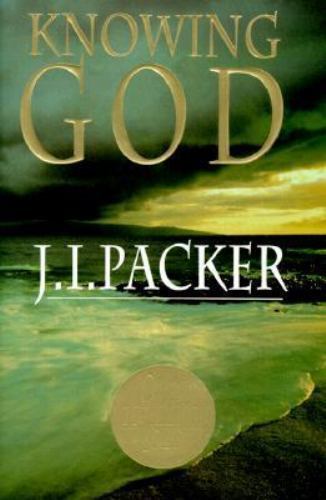

Posted on 07/17/2020 9:44:46 PM PDT by SeekAndFind
James Innell Packer, better known to many as J. I. Packer, was one of the most famous and influential evangelical leaders of our time. He died Friday, July 17, at age 93.
J. I. Packer was born in a village outside of Gloucester, England, on July 22, 1926. He came from humble stock, being born into a family that he called lower middle class. The religious climate at home and church was that of nominal Anglicanism rather than evangelical belief in Christ as Savior (something that Packer was not taught in his home church).
Packer’s life-changing childhood experience came at the age of seven when he was chased out of the schoolyard by a bully onto the busy London Road in Gloucester, where he was struck by a bread van and sustained a serious head injury. He carried a visible dent in the side of his head for the rest of his life. Nevertheless, Packer was uncomplaining and accepting of what providence brought into his life from childhood on.
Much more important than Packer’s accident was his conversion to Christ, which happened within two weeks of his matriculation as an undergraduate at Oxford University. Packer committed his life to Christ on October 22, 1944, while attending an evangelistic service sponsored by the campus InterVarsity chapter.
Although Packer was a serious student pursuing a classics degree, the heartbeat of his life at Oxford was spiritual. It was at Oxford that Packer first heard lectures from C. S. Lewis, and though they were never personally acquainted, Lewis would exert a powerful influence on Packer’s life and work. When Packer left Oxford with his doctorate on Richard Baxter in 1952, he did not immediately begin his academic career but spent a three-year term as a parish minister in suburban Birmingham.
(Excerpt) Read more at christianitytoday.com ...


Although Packer was a humble man who repudiated the success ethic, his life nonetheless reads like a success story. His first book, Fundamentalism and the Word of God (published in 1958) sold 20,000 copies in its first year and has consistently been in print since. In 2005, Time magazine named Packer one of the 25 most influential evangelicals.
When Christianity Today conducted a survey to determine the top 50 books that have shaped evangelicals, Packer’s book Knowing God came in fifth. His fame and influence were not something that he set out to accomplish. He steadfastly refused to cultivate a following. Instead, he made his mark with his typewriter (which he used to compose his articles and books throughout his life).
I read “Knowing God” back in the day. Another man of God is gone. Are there any these days that come close to these great men? D. Martyn Lloyd-Jones, Donald Grey Barnhouse..wow. I loved reading those guys. RIP J.I. Packer.
“Glorify Christ in every way.”
That’s always good advice, I need to do purposely do that more often.
**I see the photo of Mr. Packer, and he’s squinting.
Looks like he wore heavy prescription glasses.
Did he have poor vision most of his life, or just as he became old? I know nothing about him.
Either way, he had a life well and fully lived.
Was a member of a church group when they decided to read his book in lieu of a meeting.
one needs a very clear mind to know and accept God
It can’t be cluttered with the many issues of this world facing one everyday
I have trouble with it.
I try to burn up energy before I pray so I can focus by lifting weights...very small amounts of weights :) not 20 or even 30 years old anymore.
It helps me quite a bit.
My favorite quote from Packer:
“We do not start our Christian lives by working out our faith for ourselves; it is mediated to us by Christian tradition, in the form of sermons, books and established patterns of church life and fellowship. We read our Bibles in the light of what we have learned from these sources; we approach Scripture with minds already formed by the mass of accepted opinions and viewpoints with which we have come into contact, in both the Church and the world. . . . It is easy to be unaware that it has happened; it is hard even to begin to realize how profoundly tradition in this sense has moulded us. But we are forbidden to become enslaved to human tradition, either secular or Christian, whether it be ‘catholic’ tradition, or ‘critical’ tradition, or ‘ecumenical’ tradition. We may never assume the complete rightness of our own established ways of thought and practice and excuse ourselves the duty of testing and reforming them by Scriptures.” (J. I. Packer, “Fundamentalism” and the Word of God, Grand Rapids, MI: William B. Eerdmans Publishing Co., 1958, pp. 69-70.)
Our loss today is heaven's gain.
Thanks for that link to the 50 most influential books, but actually reading it requires subscribing. Any idea where one might find the list?
RE: Thanks for that link to the 50 most influential books, but actually reading it requires subscribing. Any idea where one might find the list?
Here is the list referring to Christianity Today from another site:
These kinds of rankings are always subjective and therefore controversial, but indisputably they have value in indicating works' inherent worth in general, regardless where exactly they rank for me and you. I shall see what I can glean thereby.
RIP.

He and Sproul are worshipping together tonight!
Disclaimer: Opinions posted on Free Republic are those of the individual posters and do not necessarily represent the opinion of Free Republic or its management. All materials posted herein are protected by copyright law and the exemption for fair use of copyrighted works.